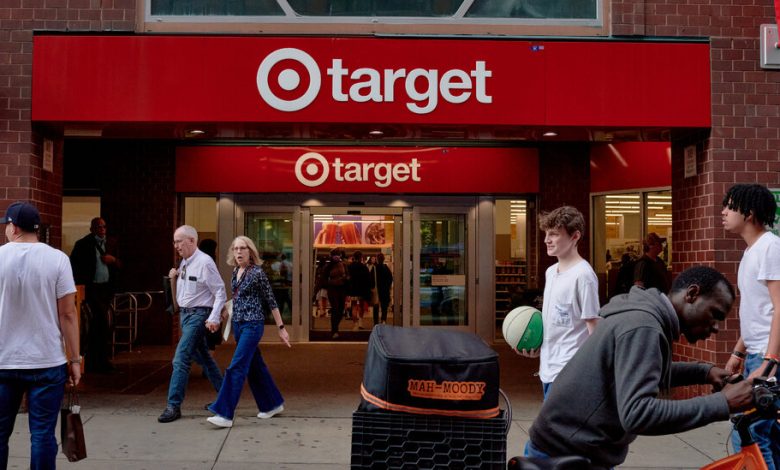At Target, Store Workers Become A.I. Conduits

Target is the latest retailer to put generative artificial intelligence tools in the hands of its workers, with the goal of improving the in-store experience for employees and shoppers.
On Thursday, the retailer said it had built a chatbot, called Store Companion, that would appear as an app on a store worker’s hand-held device. The chatbot can provide guidance on tasks like rebooting a cash register or enrolling a customer in the retailer’s loyalty program. The idea is to give workers “confidence to serve our guests,” Brett Craig, Target’s chief information officer, said in an interview.
Target is testing the device in 400 stores and plans to make the app available to most workers across its nearly 2,000 locations by August.
As the retail industry experiments with generative A.I., some see its potential to eventually make in-store shopping feel more like online shopping, said Roy Singh, the global head of Bain & Company’s advanced analytics practice who works with retailers on generative A.I. initiatives.
Retailers have personalized online shopping for customers with things like predictive technology, which suggests items to buy. Shoppers also see e-commerce as more convenient than having to walk in a store and track down workers. The Target app is meant to help workers assist shoppers with their questions faster.
Mr. Craig is often asked if these sorts of tools will replace workers, he said. “I believe the relationship between people and technology is so very important,” he said. “We’re here to make sure that they get the right tools to do their work.”
Walmart recently expanded access to the A.I. tool it had started using in its corporate offices last summer for use in its retail stores, rolling it out to 13,000 managers of its Sam’s Club stores.
While there is significant investment and hype around generative A.I., some retailers have also rolled back experiments with the technology that have failed.
“We are still in that growth curve — learning, failing and relearning — and trying to get through adoption at scale,” said Duleep Rodrigo, who leads the U.S. consumer and retail sector for KPMG.
